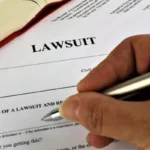Many South Florida Commercial leases do not contain the necessary protections for Landlords. As a result, they end up losing a significant amount of money due to unpaid rent or property damage. Unfortunately, this happens far too often. However, there are ways for South Florida Commercial Landlords to protect themselves. If you have questions about your Commercial Lease, contact the Law Office of Brian P. Kowal, PA at (954) 990-7552.
Terms South Florida Commercial Landlords Should Include in the Lease
1. Name and Address
The Lease should state the names of the Landlord and the Tenant. It should also include their address. This allows them to receive notices. The Landlord should request that the Personal Guarantor include their home address. In the event that the Tenant fails to pay, the Landlord can come after the Personal Guarantor.
2. Length of Lease
This should be in the beginning of every lease. While most Commercial Leases last a year, they can also be month-to-month.
3. Amount of Rent
The Lease should state the amount of rent that is due every month. In addition, if the lease allows for a renewal, it should list the amount that the rent increases. Failure to state the renewal increase can create problems in the future.
4. Renewal Option
Most Commercial Leases allow Tenants to renew. However, if the Landlord does not want to give the Tenant this option, they must state it.
5. Personal Guaranty
In the event that the Commercial Tenant does not pay, Landlords should require an individual to be personally liable. Many times, if the Tenant is evicted, the business will cease to operate. However, the Commercial Landlord can still try to collect against this Individual. Our firm has found that many commercial leases do not include a guaranty. This can be devastating for a Landlord that may be owed thousands of dollars.
6. Security Deposit
Florida Statute does not contain a section regarding Commercial Security Deposits. Therefore, the process to return it or place a claim on it should be stated in the lease.
7. Maintenance
We always advise Commercial Landlords to require their Tenants to be responsible for maintenance. If they do not state the Tenant’s obligations for the maintenance, it could lead to problems in the future.
8. Non-Monetary Violations
Non-Payment of Rent is not the only way a Commercial Landlord can evict a Tenant. If they violate a material provision of the lease unrelated to payment, they can be removed from the property. However, Florida Statute does not list the violations that are material and non material. Therefore, it is important that the lease provide a breakdown.
9. Assignment
A South Florida Commercial Landlord should always include this in their Lease. Some make the mistake of leaving it out. This can cause problems because a Tenant may assign the lease to someone that has a negative rental history. On the other hand, if included, the Landlord will be required to consent to the Assignment. As a result, they can avoid a Tenant that could potentially be disruptive.
South Florida Commercial Landlords should have a lease that best protects their rights. If you have questions about your rights as a Commercial Landlord, contact the Law Office of Brian P. Kowal, PA at (954) 990-7552.






